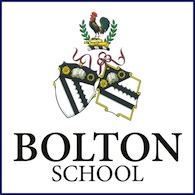 The last days of October and we finally have our last GCSE result for Summer 2019. Do you remember results day back in August? When the pupils got their exam results – and many, but not all, were marked correctly. The number of errors in the exam system is better than it was, but is still much too large and matters too much not to do more about it. Those scenes on exam results day, joyous photographs and sad moments. College places won and lost. And for too many those sad moments need not have been sad and a college place should have been won not lost.
The last days of October and we finally have our last GCSE result for Summer 2019. Do you remember results day back in August? When the pupils got their exam results – and many, but not all, were marked correctly. The number of errors in the exam system is better than it was, but is still much too large and matters too much not to do more about it. Those scenes on exam results day, joyous photographs and sad moments. College places won and lost. And for too many those sad moments need not have been sad and a college place should have been won not lost.
Our last result was a grade up on the original. It has already been remarked using the system and had not changed. We appealed and the Chief Examiner then saw, despite the previous check for which we had at the time been charged, that a clerical error had added 4 instead of 14. In another subject this year one mark went up by 19 marks , another by 12. The remark system attracts attention as it is seen to be unfair that those whose schools have time and patience, and those candidates who can afford the fee for the remark, have these checks and others may be putting up with grades that are wrong. The system needs to be a lot more fair in the first place. Candidates not schools should be able to appeal (at risk of going up and down, to avoid speculative remarks) and it should be free as part of the process. For too long the exam boards have put the school between the candidate and the exam board systems , which is entirely for their own convenience. Too often the school takes the heat for the exam boards mistakes, sandwiched between concerned parents and pupils and the exam board process.
It is time to nationalise the examination industry. The reasons for having five or more exam boards, each seeking to make some profit in various ways, with the consequent need for two different organisations to then monitor their work for consistency, have outlived their purpose and waste time and resources. The system dilutes the pool of good examiners across too many different boards, removes economy of scale and produces complications of comparability there need not be. We would need variety in specifications within subjects and there would need to be systems to avoid the national exam board becoming political in intent, but other parts of national life have those checks and balances. The exam board industry grew organically, from entrance tests for university originally. It needed to scale up in the 80s at a time when markets were the answer to everything. Now it needs to adapt to change – on line testing and marking, the use of more powerful technology to examine (and to cheat), different patterns of examining and life long learning. A national unified examination system will allow the flexibility, innovation and capacity to tackle those changes.

Leave a Reply